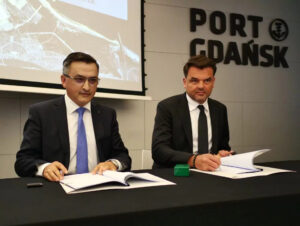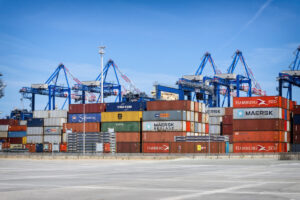The Port of Rotterdam has announced that a recent desktop trial in Just-in-Time (JIT) ship operations demonstrated how emissions can be cut considerably by reducing idling time outside the port.
The Port said communicating relevant information, such as the requested time of arrival, to the ship in advance can allow the captain to adjust to optimum speed and cut harmful emissions.
It conducted an exercise along with A.P. Moller-Maersk (Maersk), Mediterranean Shipping Company (MSC) and the IMO.
As part of the exercise, 26 vessels which called at one particular terminal at the Port were analysed over the course of one month.
The vessels received an update on when they were requested to arrive at the Pilot Boarding Place – in one scenario 24 hours before arrival and in the other 12 hours, and subsequently optimised their speed.
On average the 26 ships consumed 9% less fuel in the JIT scenarios where speed was optimised in the last 12 hours.
Optimising speed in the last 24 hours of the voyage resulted in average fuel savings of 8%. The Port said these results show the significant fuel and emission savings that can be achieved through JIT, even when a relatively advanced port is called by relatively efficiently operated ships.








